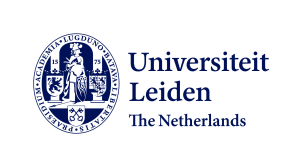Counterfactuals in games have started to catch the attention of various disciplines, aiming to understand just what pasts are (and are not) reckoned with. The fields of historical game studies, media studies and archeaogaming have begun untangling the conceptual and theoretical underpinnings of counterfactual play to focus on player experience. In this two-day workshop held at Leiden University on a date to be announced later, we aim to approach counterfactuals from the other side of the same coin: the processes at play in counterfactual game design and development.
Significant insights have been gained in exploring counterfactuals in historical video games, examining the role of player practices in carrying out the act of historying (Chapman, 2016; Apperley, 2018), counterplay as a mode of resistance against normative authenticities and dominant narratives (McCready, 2019; Mol, 2020), and most recently, the various forms of counterfactual game-setting—wishful thinking, possible worlds, and future fictions—and the ways in which counterfactual games are legitimized as credible, authoritative historical representations (Grufstedt, 2022). These perspectives tend to examine counterfactual games as objects of analysis functioning as agentive representational systems, and counterplay as a player-centered act that generates new ways of knowing and making history. In order to supplement existing work, we propose a space for the discussion and study of counterfactual game design as a processual phenomenon in which histories are navigated, selected, and coded. Grufstedt (2022) has already made strides forward in looking at the maker “side” of counterfactuals, interviewing creative directors, art & content designers, and game designers to “look under the hood of the context of game making and the game product” (p. 23). We hope to continue this work by adopting a practice-based, process-focused view of counterfactual games as constructed representations of historical knowledge.
Our goal is to facilitate a space for scholars at every level to discuss the approaches, challenges, and elements involved in designing counterfactual play. How do terms like agency, immersion, affect, choice, and narrative come into question in forming and shaping counterfactual play? We encourage contributions from undergraduate, graduate, and postgraduate scholars tackling procedural rhetoric, discursive accuracy, affective counterplay, and any other topic centered around the making and development of counterfactual games.
We invite submissions in two tracks: short abstracts (100-250 words) for 5-minute flash presentations, and extended abstracts (500-100 words) for 20-minute presentations. Scholars at any level are welcome to submit to either track; our hope is that students and early career researchers are able to present their ideas to an audience of experienced historical game studies academics, and that the exchange of ideas, feedback, and critique will happen in many directions.
As stated, our aim is for this project to be practice-based, centering the experience of game-making rather than the experience of having seen something made. For this reason, we explicitly invite game designers and developers to contribute to this event, as well as participants from the Counterjam who would like to present or write about their game design process.
If you are interested in participating in this workshop, please send a title, abstract, and a brief biography of all authors to workshop@playfultimemachines.com, with your preferred track (FLASH or EXTENDED) in the subject line of the email. Submissions and any references should be in APA citation style.


